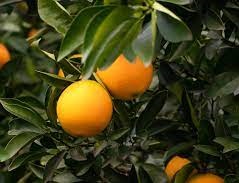The Good, the Bad, and the Plastic
By Anthony Casperson
8-19-23
Just over two weeks ago, the game Baldur’s Gate 3 was officially released. (Although console gamers, like me, have to wait a little bit longer to play.) It’s an understatement to say that a lot of people are currently playing the game. This means that playthroughs and discussions of the game dominate my video feeds right now.
One of these videos discussed why the presenter believed that the game held such appeal. And part of his reasoning fell upon the realistic nature of the characters—which is a funny statement when you consider that the player can control a dragon person, if they wanted to.
The game designers placed actors in mocap suits so that their gestures and expressions could be transferred over to the characters they played. It gives a proximity of life to the pixels in a way that no computer can quite capture.
Making computer generated characters look like realistic humans has been a desire for the entirety of CG’s existence. And we’ve seen enough bad examples of it to know that success is elusive. Dead-eyed abominations still haunt some of our nightmares.
But even the most successful attempts still retain that uncanny valley. Our minds can tell that an image isn’t actually a real person. There’s something a little off. Something a bit too perfect—too plastic—to the image. As good as the characters are in Baldur’s Gate 3, it still requires a suspension of disbelief to see them as real people.
Whether the CG is terrible or not, a simple look can tell what’s real and what’s fake. Sure, the more-convincing attempts might require a little more investigation, but there’s something in us that can tell the difference with only a bit of time.
This ability to discern what’s real, what’s terrible, and what’s a convincing—but still fake—copy takes center stage in our passage for this second to last blog in our “Summer on the Mount” series. In Matthew 7:15-23, we’ll see the good, the bad, and the plastic when it comes to the fruit of people’s deeds.
But before we look at what Jesus tells his audience about our deeds and the fruit it bears, let’s remember where we’ve been throughout our time in Jesus’ sermon. The entirety of Matthew 5-7 shows Jesus giving his audience a kingdom ethic. It’s how the people who belong to the kingdom of heaven should act and what their motivations should be for the actions.
We should have a righteousness, a life devoted to the ways of God, that is more than the strictest Pharisee. We shouldn’t attempt to find ways to squeak by with the least amount of effort just because we found some loophole that makes us look better than we are. As a matter of fact, we shouldn’t attempt to loosen the commands of God at all, because in doing so, we would find ourselves no different than the people who belong to kingdoms without God.
And citizens of God’s kingdom are truly different.
Our treasure shouldn’t be the accolades of those around us. If we’re doing good things only for appearances and applause, then we will quickly find that treasure stolen or rotting. Instead, we should seek the treasure of heaven, God’s good for us.
This means that we must take a clear-eyed look at ourselves—and also be willing to accept the gift of judgement from other clear-eyed people—so that we can better align ourselves with the commands of God.
All so that we can be transformed by the narrow way of God that leads to life.
Every other way—wide and spacious as it might be—will lead only to death. The hordes of people who twirl and spin and leap about the wide way to death might try to convince us that their way is just as good as ours, but they are blind to the truth of their destination.
And it’s here that we pick up Jesus’ words in Matthew 7:15. He knows that there will be many who try to convince his people off of the narrow way. Some might even use the vocabulary of the godly in order to prove that they’re heading on the path toward the kingdom of God, but if we look past their words we’ll see something off. We’ll see something wrong in their actions.
It’ll be obvious, if we only take a second to look with discernment.
Jesus commands his followers to beware false prophets. Beware those who claim to have a word from God, but instead are only following a god made in their own selfish image. A powerless deity that goes along with everything they say, because it’s not real. Their words hold no power.
Some of these liars aren’t just misled, thinking that they’re right while having been fooled. Instead, there are people among these false prophets who intend to lead as many as they can away from the narrow way. They refuse to be shaped by the right way, and because their way leads only to death, want to lead others along their deathly trail. Misery loves company. And death’s maw cannot be sated.
These false prophets will come in the guise of godly people. But in fact they are nothing but agents of death. Wolves that swindle the life from the naïve and unobservant. CG characters shrouded in darkness so that you can’t see how badly they’re rendered.
It’s only those who don’t take that second to look who won’t see the truth of their wrongness. As Jesus says in verse 16, you can tell the false prophets from their bad fruit. When all that you find are thorns and thistles, you know you haven’t come to a grapevine or a fig tree. Dead-eyed stares and unhuman movements are clearly not actual people. Not beings filled with real life.
Jesus continues his agricultural illustration by saying that good and healthy trees bear good and healthy fruit, but diseased and rotten trees bear only diseased and rotten fruit. Disease tends to spread. And so if one part of a tree’s fruit is diseased, the rest will be suspect at best. Thus, if you want good fruit, you must look to healthy trees.
But there’s an interesting aspect to Jesus’ words that’s missed in our translations. While we’ve come to see that there’s an illustrative correlation between the actions we do and the fruit we bear, it’s actually intentionally clear in the Greek of the passage. See, the word for “bear” in the Greek is not the usual one. Instead, it’s the word for “do/make.”
It’s the natural outgrowth of our actions we do that is our fruit. The consequences of our deeds. If we look at the wake trailing behind a person, we can witness every dead-eyed stare and know that this person presenting their prophetic utterance has no idea what life is.
Our one second to take a closer look will reveal much. Because you can recognize the deathly by their fruit. The terribly-skilled by their past work.
However, there are some who walk the wide way toward death in total ignorance of their horrible fate. Those who glance at their perfectly placed fruit baskets with pride for all of the beauty, only to find themselves standing before God and told that it’s all plastic. There was an uncanny valley that they willfully suspended their disbelief for. All because they wanted life, but were unwilling to walk the narrow and hard way that led to life.
In verses 21-23, Jesus speaks of these mislead unfortunates. Many will come before the seat of Jesus and call him, “Lord.” But as they offer him the fruit of their labor, he will reveal the truth of their plasticity. Disbelief no longer suspended, the truth will crash down on them. What they thought was real, had been fake all along.
If only they had taken a second to look, if only someone with clear-eyed vision had told them—or not been run off—perhaps they could’ve been warned. And this fate of unbelief could’ve been undone.
But as it stands, many will point to the good deeds they did, supposedly in the name of God, only to find that it had been a hoax all along. A semi-convincing photoshop of God’s presence superimposed over their self-made god. The good deeds done all for their own glory. For the adulation of those around them, instead of for the glory of God.
And they will be sent away from the God they thought they served with the words, “Depart from me, you worker of lawlessness,” ringing in their heads. All because they didn’t take a second to judge whether or not the fruit made by their actions were good and real.
Jesus calls us to a narrow and hard way that will lead us to be like him in holiness. And that holiness will naturally make the fruit of life. Everything else is diseased or plastic. Whether it’s terrible or quite amazing, CG will remain just as fake.
So, the call here is to beware false prophets who try to mislead us from the way of life—even if that happens to be us as we arrange our plastic fruit in a lifeless semblance of beauty.
Many today refuse the holy and righteous ways of God because they want the accolades of those on the wide way that leads to death. They want to be looked at as good and accepting when all they’re chasing is the rot and plasticity of the lifeless. Or worse, they’re fooled into thinking that if they just loosen this one aspect of the holiness of God, then they can win people to his kingdom.
But they forget that any loosening of the holiness of God makes them just like the very Pharisees they claim to be different than.
If our direction doesn’t mold and shape us toward holiness, if we can just continue on like before—or like those on the wide way—then we are not heading toward the life of the kingdom of God. We’re chasing after pixels instead of the real thing.
Yes, those who belong to the kingdom of God should know that we’re able to come to him with our brokenness and scars, but we should also know that he will never leave us there. He won’t let us wallow in our diseased and lifeless state, but rather, will heal us and bring life to what was once dead.
And living things grow and move toward something. If they don’t they’re headed in the direction of death.
So, take a second to look at the wake trailing behind you, and behind those who claim to show you the way of God—including me. If there are dead-eyed stares or plastic fruit, then something must change. Find real people who share the real fruit of life as they walk the narrow way. Reach out toward those who seek the righteousness of the kingdom of God and learn the truth of our Lord from them.
Pursue the truth of God, found in his word, and do as he commands. Only then will we find the real good of holy fruit. And hear the loving welcome of the Lord we serve.
Mimicry of life isn’t enough, no matter how close the attempt. So, put away the plastic fruit. And repent from the rotten wake of the wide way that the culture around us leaves behind. Seek the holiness of the narrow way and make the good fruit of life.
The kingdom of God doesn’t accept diseased or plastic fruit. Only the real thing.



